"Warning signs" seen around police hiring, retention

| Published: 03-24-2024 5:00 PM |
BOSTON — Public Safety and Security Secretary Terrence Reidy warned lawmakers this week that big cities and small towns face a “major issue” with recruiting new candidates for law enforcement jobs and said he’s worried about the future of public safety in Massachusetts.
Speaking during a fiscal 2025 budget hearing Tuesday, Reidy shared with lawmakers the concerns he’s heard from police chiefs throughout the commonwealth and noted the widespread impact on police forces and the Department of Correction.
The secretary attributed some of the challenges to negative public perception and a “false narrative” surrounding police officers and prosecutors.
While Rep. Todd Smola mentioned strategies such as offering signing bonuses to attract talent, Reidy lamented, “I don’t know what the answer is.”
“I know one small part we’re trying to do is educate the public, in a sense, through our internship program, to give folks an opportunity to see what people do on the public safety side, including State Police, including the DOC, including fire,” Reidy said at the Worcester hearing. “Everyone loves the firemen, so they’re not in the same boat. But it is a significant issue that I think is going to take the administration, the Legislature and our community partners.”
The secretary added, “I’m worried. I’m worried where we’re going to be in three years, five years, if we don’t have new blood coming into the system.”
In Royalston, a shortage of police officers has led the town to form a service agreement with the State Police.
In the most recent edition of “The Royalston Community Newsletter,” Royalston Police Chief Curtis Deveneu told residents, “We continue to review the best path for our communities’ policing needs as a result of the restrictions placed onto us by the Police Reform Bill, which has had a detrimental effect on smaller communities as it eliminates the training for those who want to serve their community as part-time officers…Our current staffing level has dropped to nine staff.”
Article continues after...
Yesterday's Most Read Articles
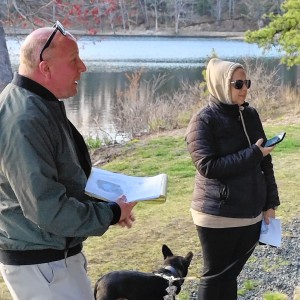 Plan calls for upgrades to Silver Lake in Athol
Plan calls for upgrades to Silver Lake in Athol
 On The Ridge with Joe Judd: What time should you turkey hunt?
On The Ridge with Joe Judd: What time should you turkey hunt?
 Magic comes to Red Apple in Phillipston
Magic comes to Red Apple in Phillipston
 Students plant red maple outside Athol Community Elementary School
Students plant red maple outside Athol Community Elementary School
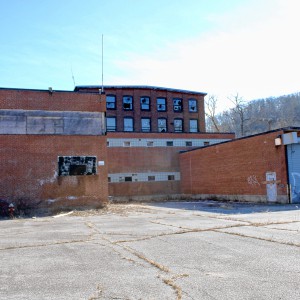 Erving rejects trade school’s incomplete proposal for mill reuse
Erving rejects trade school’s incomplete proposal for mill reuse
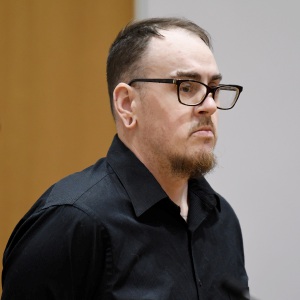 Orange man gets 12 to 14 years for child rape
Orange man gets 12 to 14 years for child rape
Until enactment of police reform in 2020, Royalston’s Police Department had a staff of 19 officers.
Scott Hovsepian, president of the 5,000-member Massachusetts Coalition of Police, said MassCOP is supporting recruitment efforts and “providing tools and benefits that help attract more people into policing.”
“We certainly share Secretary Reidy’s concern about the lower volume of men and women entering or even exploring the law enforcement profession,” Hovsepian told the News Service. “Gov. Healey has also expressed concern to us directly with this trend. We appreciate that the administration is prioritizing solutions.”
The State Police is feeling the pinch from a dearth of graduates from its academy training program from 2006 through 2012, State Police Association of Massachusetts President Brian Williams said.
Hiring efforts are also stymied by the 2008 loss of an education pay incentive, which previously gave state troopers a salary hike as they earned certain degrees, Williams told the News Service. Some local police departments do provide that incentive, and some in the Greater Boston area offer a base pay that can be 25% higher than that of the State Police, said Williams and SPAM spokesman Chris Keohan.
With those discrepancies, Williams said it would be an easy decision to join a municipal police department over the State Police.
“If we don’t have the number to staff appropriately, then there’s not going to be enough troopers on the road to respond to crashes or other critical incidents that occur every day,” Williams said. “Members are being forced to work additional shifts, missing holidays, missing family events. It affects personal lives, it affects the morale.”
Reidy did not provide concrete statistics about the public safety workforce woes, though he warned the attrition rate is high among civil service applicants. The number of civil service exam applicants for State Police dropped from 14,314 in 2013 to 4,744, MASSterList reported last March.
“The other thing you should look at is the attrition rate among chiefs of police in Massachusetts,” Reidy told lawmakers. “It’s through the roof the last couple of years.”
More than 100 police chiefs stepped down in the months following the start of the police reform movement in the fall of 2020, said Mark Leahy, executive director of the Massachusetts Chiefs of Police Association. Those departures have slowed, but Leahy told the News Service the volume of candidates interested in open positions has “dwindled.”
Leahy said the association has also seen a “number” of second-in-command officials not seeking the top chief job.
The State Police has about 2,300 sworn members, though the goal is to get that number above 3,000, Col. John Mawn said at the hearing. The force hovered near 2,000 at this point last year, he said.
Mawn said retaining State Police members is not an issue, but he noted the workforce is “very mature.”
“I don’t have the figure in front of me, but if everybody that could go decided to go, we’d be going backwards quite a bit,” Mawn said.
The State Police has been under Mawn’s leadership since February 2023. Gov. Maura Healey tapped Mawn to serve as interim superintendent and has not yet named a more permanent leader for the force. The Executive Office of Public Safety and Security told the News Service in mid-January that interviews with the most qualified candidates were to begin soon.
Smola, a Warren Republican, had asked for Reidy’s input on expanding the municipal police workforce, particularly in rural communities where small departments are more acutely feeling the strain of vacant positions.
Smola said that being down one police officer could translate into 10 to 20% of a police department in central or western Massachusetts. He acknowledged that law enforcement “in so many arenas seems to be vilified.”
“When police chiefs are offering big signing bonuses, big incentives to come on board, and they’re still not getting the qualified individuals to apply for these positions, this is a huge problem,” Smola said.
Police chiefs are also struggling to make internal promotions, as they lack workers who have enough years of experience to move up the chain of command, Smola said.
“That’s another serious problem that we’re hearing from a lot of different pockets of local police departments,” Smola said. “I’d just love to get your feedback in general on that, and how we as a Legislature can kind of focus in with laser-like precision on trying to figure out how our municipal police departments are well-prepared to be able to go after good qualified individuals, and to be able to keep them around for a while so that they can make sure that they have a full complement on their local departments.”
Reidy said he’s been working with police chiefs and Mawn to tackle the narrative surrounding public safety professionals, as well as people’s resistance to considering the available career opportunities.
Ensuring a diverse pool of candidates for the State Police, DOC and the Executive Office of Public Safety and Security is another big obstacle in recruitment efforts, the secretary said.
“Our numbers were way down for that last RTT in the State Police,” Reidy said of the Recruit Training Troop. “These are all warning signs because when something goes wrong in the community, whether it’s a small community or a city, you need first responders.”
Hovsepian, whose group has officers in 181 communities, tied law enforcement labor woes back to the heated debate that led to a law targeting policing practices, instituting a police certification process, and enacting other justice system reforms.
“It should come as no surprise to anyone on Beacon Hill, however, that so many talented men and women have been dissuaded from pursuing public service careers as officers,” Hovsepian said. “The hostile, anti-police rhetoric which accompanied the debate over law enforcement reform in Massachusetts inflicted permanent damage.”

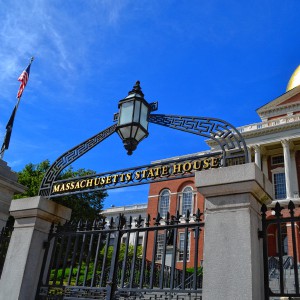 Over $400M in shelter funding, new limits approved
Over $400M in shelter funding, new limits approved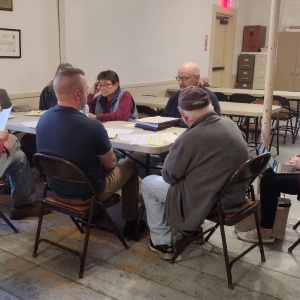 Royalston’s FinCom debates proposed salary increases
Royalston’s FinCom debates proposed salary increases PHOTO: Spectacular spire
PHOTO: Spectacular spire Locking up carbon for good: Easthampton inventor’s CO2 removal system turns biomass into biochar
Locking up carbon for good: Easthampton inventor’s CO2 removal system turns biomass into biochar